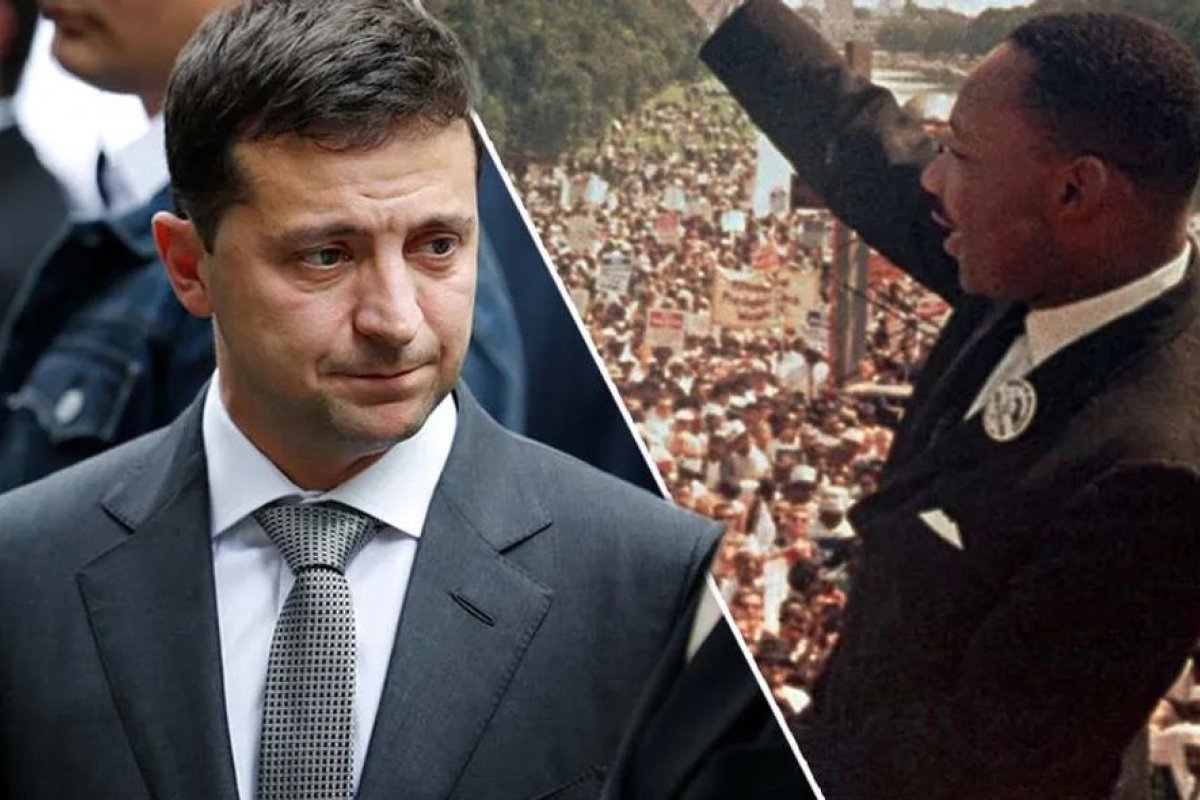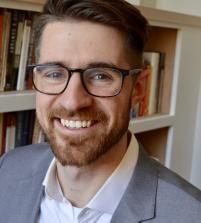
Why Believe in Democracy? What Martin Luther King Jr. and Volodymyr Zelensky Have to Teach Us
Why is democracy a good thing? Is it? Ukrainian President Volodymyr Zelensky’s appeal to Rev. Dr. Martin Luther King, Jr. helps us understand what it takes to answer this question.
Russia continues to drop bombs on the people of Ukraine. The already war-wearied Ukrainian people continue to resist this Russian aggression with courage and grit. And in doing so, commentator David Brooks argued in his recent column in the New York Times, they have reminded us “what we believe... They have reminded us not only what it looks like to believe in democracy, the liberal order and national honor but also to act bravely on behalf of these things.” More than this, Brooks says, they have “convicted” us of failing to believe in (and act on) them at all.
I am inclined to agree. Brooks is right to say that the events in Ukraine unfolding across our screens challenge us, in a very practical and concrete way, to recommit to democracy. (And another $800 million in military aid to Ukraine is certainly a commitment.) But he is also right to suggest that there are many among us who have found it difficult to believe in democracy, liberalism, and the various political and economic projects of the West. This fact raises a difficult-to-answer question: how do we know that democracy is a good thing?
No, really. Have you ever stopped to ask yourself the question? Why is democracy good? As a rule, we in the United States are taught in various ways—in schools, on the news, in civic settings, and through the culture—that democracy is good. Yet, few of us are ever encouraged to reflect on why it is good. Answering it isn’t straightforward, either.
There are two basic approaches to answering this question: Is democracy a good thing?
- By appealing to democracy itself as a source of normativity
- By appealing to another source of normativity—this is commonly a philosophical, moral, and/or religious tradition
The first approach generally explains democracy’s goodness with terms whose normativity comes from the democratic tradition itself. Democracy is good because it achieves good outcomes (e.g., justice, freedom, equality, prosperity). If it falls short of achieving them, at least it pursues worthy ideals (e.g., justice, freedom, equality, prosperity). This approach has its advantages in a pluralistic society: it appeals to the aims and values of a tradition of political thought and practice which is widely shared and broadly intelligible in democratic countries. Yet, this approach is also limited in the explanations it can provide for democracy’s goodness. Note that it gives rise to questions that the tradition of democracy has trouble answering: Why is freedom good in the first place? Why is justice good? And equality?
The second approach sets democracy in conversation with another source of normativity in order to explain why it is a good thing—often a moral, philosophical, and/or religious tradition. Democracy is good because it promotes the values of the tradition of human rights. Democracy is good for women. Democracy is good because it accords with God’s will. This approach has its disadvantages in a pluralistic society: any language borrowed from a particular moral, philosophical, or religious tradition is likely to be meaningful only to members of that tradition, and thus the explanation limited. Yet, this approach has the advantage of being able to identify and explain the ways in which democracy’s values cohere with our broader understandings of the world and our places in it.
In his plea to Congress last week for a no-fly zone over Ukraine, Zelensky appealed to Americans’ belief in democracy’s goodness. It is worth noting that he embraced both approaches.
He repeatedly invoked the values common to Western democracies, including “freedom,” “independence” the “right to live freely in our own country,” as well as the right to self-determination and “choosing our own future.” He did not provide an account of why freedom or self-determination is good. Given his audience, he didn’t think he needed to. And if Brooks is correct that most Americans do, somewhere, deep-down, believe in democracy, then Zelensky was right. He didn’t need to explain to Americans why democracy is a good thing.
Yet, Zelensky also adopted the second approach. In this case, he turned to the words of a famed American religious leader to remind to Congress what’s at stake in his plea for aid. Zelensky referenced the point in Martin Luther King Jr.’s “I Have A Dream” speech where King calls America to live up to her own democratic ideals and live out the “true meaning of her creed.” By invoking this line, Zelensky urged Congress to live up to the ideals of American democracy, which he believes involves defending a free and democratic Ukraine from the aggression of authoritarian Russia. Zelensky also certainly invoked King’s famed phrase in order to draw a parallel between Ukrainian resistance to Russian aggression and black Americans’ struggle for racial justice. And he clearly chose it for its historical and emotional resonance.
However, Zelensky’s appeal to the words of a religious social critic (King was an ordained Baptist minister) also suggest evidence of the second approach because King himself consistently provided interpretations of why American democracy is a good thing in religious terms. To put King’s view very briefly: King thought that the ideals of American democracy were worth pursuing, worth believing in, were good, because of their great potential to promote human dignity (or “human personality” as he liked to call it), which is a function of human beings’ creation in the image and likeness of God. For King, freedom, equality, democracy are all good because they respect and encourage the flourishing of human persons.
Zelensky’s appeal to King suggests that he sees power in both approaches: Congress is likely to be moved to act on behalf of Ukraine’s struggle for democracy by accounts of its importance in terms of its own values (Approach 1) as well as in terms other normative traditions that are meaningful to them (Approach 2). His dual approach suggests that, in a religiously plural democracy such as the United States, it can be important, and importantly motivating, to explain democracy’s goodness both in democracy’s own terms and those of religious traditions.
Further, I would argue that Zelensky’s choice to adopt the second approach reveals a fear that only adopting the first would be insufficient to the task at hand. It implies that Zelensky fears that the Americans’ hesitancy to intervene more directly on Ukraine’s behalf is connected to a deeper uncertainty about democracy’s goodness. Maybe the Americans are beginning to question democracy’s value, after all? And so, he decided that they would need reminding of democracy’s goodness in terms of another normative tradition, too. In doing so, Zelensky challenged Congress—and by extension challenges all of us—to think harder about why democracy is good and what we’re willing to do in defense of it.


